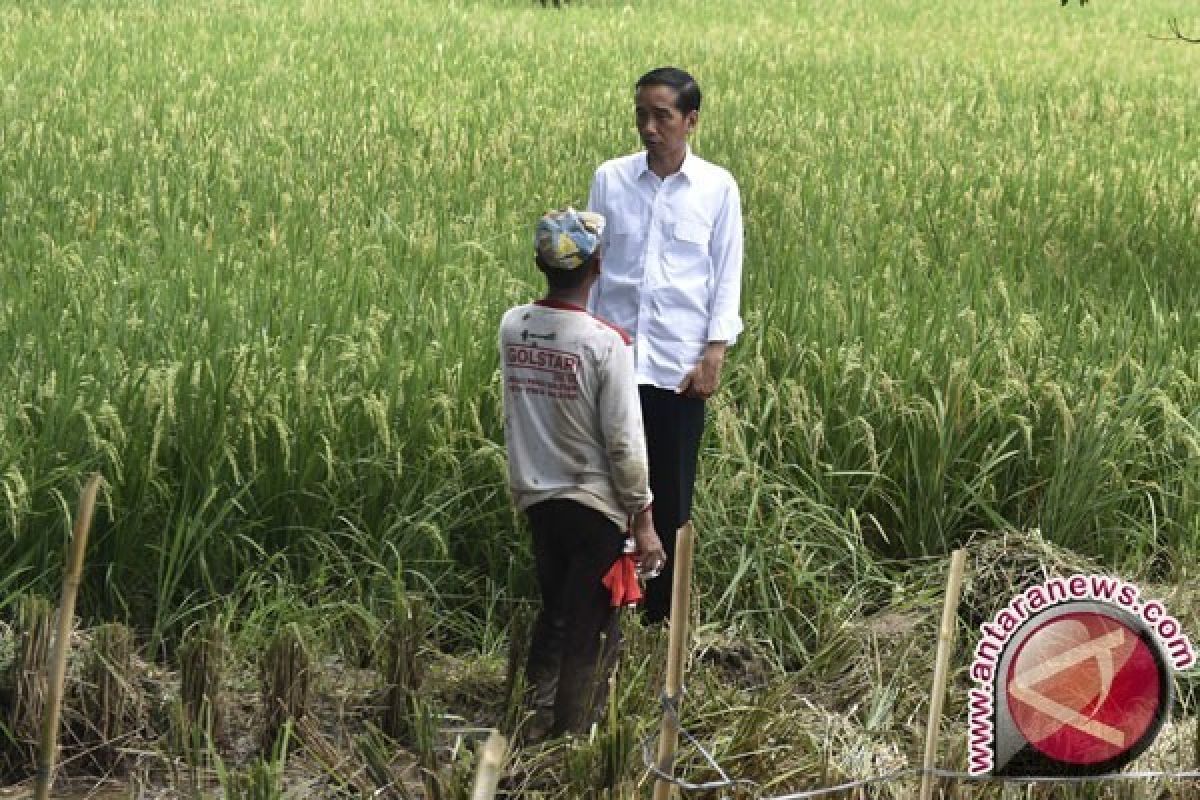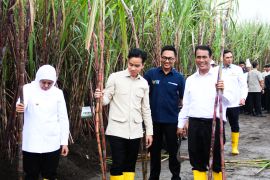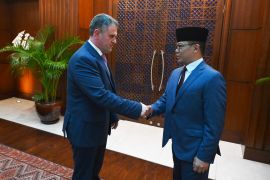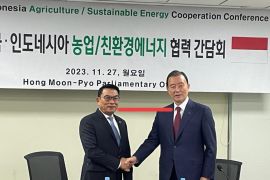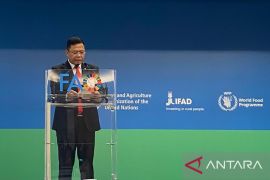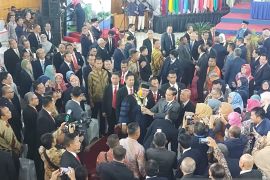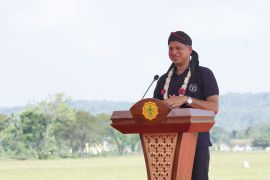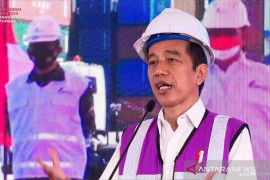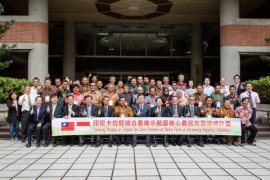Through the use of technology, including agricultural mechanization, rice production is expected to increase by 200 percent."Jakarta (ANTARA News) - One of the aims of the Indonesian governments programs in 2016 was to advance the agricultural sector, in order to regain the countrys self-sufficiency in rice, as in the past.
Due to its efforts to introduce mechanized agricultural technology, repair damaged agricultural infrastructure, and open new rice fields, the government has been able to change the countrys rice planting season from one to two, and even three times, per year.
With its success in carrying out these programs in 2016, the government increased unhusked rice production to 79 million tons, exceeding its target of 76 million tons of unhusked rice, and stop importing rice in 2016.
"Indonesia will not need to import rice, and it could even export the commodity to other countries, " Agriculture Minister Andi Amran Sulaiman said in the village of Bhakti Rasa, Sragi subdistrict, South Lampung, on Thursday (Dec 29, 2016).
National production of unhulled rice rose to 79 million tons in 2016, from 74 million tons of unhulled rice in 2015 and 70 million tons in 2014.
In order to maintain and advance the agricultural sector, the Ministry of Agriculture will continue to promote the use of agricultural technology.
Indonesian farmers should now become skillful in the use of technology and the use of hybrid seeds. Thus, they are expected to see harvest seasons two to three times per year.
Additionally, the use of technology will continue to be promoted by the Agriculture Ministry in order to improve the welfare of the farmers.
"Through the use of technology, including agricultural mechanization, rice production is expected to increase by 200 percent," Minister Amran Sulaiman said, conducting a rice grand harvest in Margorejo Village, Metro Selatan Subdistrict, Metro City, Lampung on Friday (Dec 30).
According to the minister, his ministry will continue to make efforts to increase agricultural production through mechanization, such as providing machine tools for farmers.
Through measures, such as the provision of agricultural machinery (alsintan) to farmers, the ministry encourages mechanization of agriculture, a policy that will continue to further improve agricultural productivity.
The minister said the use of agricultural technology resulted into reductions in production costs by 50 percent. The production cost of one hectare, which usually reached Rp12 million, has now been reduced to Rp6 million. In addition, in one year a farmer can plant two to three times.
In order to regain the countrys former high levels of food production, the government has also overhauled various regulations in the food sector and repaired damaged rice growing infrastructure, which reached three million hectares. President Joko Widodo (Jokowi) has asked the minister to finish the repairs within three years, but the Minister of Agriculture said his staff has been trying to complete this in one year.
The government is also improving the distribution of fertilizers and has taken action against those who distribute fake or mixed fertilizers, which harm farmers.
Self-sufficiency in food can be achieved through efforts to modernize agriculture, while new regulations and infrastructure are improved. The officials have worked hard to boost production and control exports and imports. Organic agriculture is very attractive and prices for this produce could increase ten times and improve the welfare of farmers.
The government has distributed some 160,000 agricultural machine tools in the regions. Also, in 2016 Indonesia tried to open up 200,000 hectares of new rice fields.
By increasing the acreage of the countrys rice fields by 200,000 hectares, rice farms in Indonesia now cover some 9.0 million hectares.
Chairman of the Peoples Deliberative Assembly (MPR) Zulkifli Hasan praised the efforts of the agriculture minister to increase agricultural production through various measures, including mechanization.
"We both know, at this time, to increase agricultural land was very difficult. But the population will surely continue to grow so that food production should be increased. Therefore, I appreciate the performance of the Minister of Agriculture and his efforts to increase production, especially through technology mechanization," he said.
The assembly speaker also expressed his gratitude to Minister of Agriculture Andi Amran Sulaiman, whose efforts during the past two years, he said, had lifted agricultural production and ensured that the country did not have to import rice.
"It must be recognized that I am grateful for the performance of Amran, who has proven his ability to increase agricultural production. And, this is the reality this year, as the government did not import rice after 32 years of importing the commodity. It should be appreciated because, with our current condition, it is not easy to do," he said.
According to Zulkifli, providing agricultural machinery to farmers is a very effective, helpful policy, and in accordance with current requirements.
"It is inevitable that mechanization is really required. Farmers used to set off into the fields while it was still dark, they are exposed to the sun and their skin became dark, and they returned home very late, again when it was dark. By using new tools, such as hand tractors, farmers can finish cultivating one hectare of land in three hours, where it used to take 11 days to cultivate," said Zulkifli.
(T.A014/INE/KR-BSR)
Reporter: Andi Abdussalam
Editor: Priyambodo RH
Copyright © ANTARA 2017
